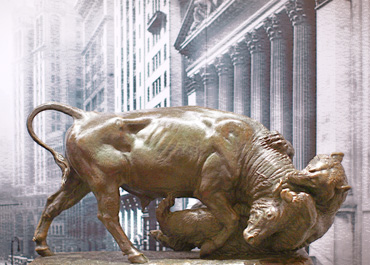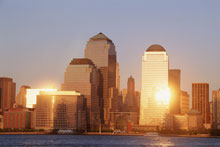Archive
How the Credit Crisis Could Forge a New Financial Order
Published: October 15, 2008 in Knowledge@Wharton
In the middle of a battle, it’s hard to know what the landscape will look like after the smoke clears. But as the government wrestles with the credit crisis, economists and finance experts are starting to make some predictions.
Individuals and businesses will have a harder time getting loans in coming years, but also may be less eager to take on debt. There will be “more” financial regulation or “better” regulation, but definitely not less regulation. There will be intense efforts to see what is going on inside previously opaque areas like hedge funds, derivative markets and subsidiaries set up to evade restrictions. Instruments like credit default swaps, which helped bring down AIG and other big financial institutions, are likely to become more standardized, allowing them to be traded on centralized exchanges so that values will be easier to fix.
“We have to design a system where participants cannot threaten the safety of the American economy,” says Wharton finance professor Richard Marston. “I think this crisis is bad enough that it has rung some alarm bells, and there’s a better chance of doing something right … than there has been for decades.”
Financial Crisis: How to Stop the Panic
It is possible to calm the waters, but it’ll mean unlearning our post-Depression lessons
The world’s governments are shocked and dismayed by their inability to stop the increasingly grave financial crisis. Nothing they have attempted has gotten lending flowing normally. Profitable companies are cut off from borrowing. Confidence is shot. Through Oct. 7 the U.S. stock market had its worst five-day performance since 1932 on fears of a severe economic downturn. Says Stephen Jen, currency economist at Morgan Stanley (MS) in London: “The choices for the real economy are between a recession and a depression.”
 Can anything be done to halt this panic? As a matter of fact, yes. It won’t be quick or easy. But the prerequisite for a new approach is unlearning doctrines that were developed in the aftermath of the Great Depression, the last time financial conditions were worse than this. The world has changed in the intervening seven decades, and what worked to quell the financial crisis then may not work now—as anyone trying to borrow money can see.
Can anything be done to halt this panic? As a matter of fact, yes. It won’t be quick or easy. But the prerequisite for a new approach is unlearning doctrines that were developed in the aftermath of the Great Depression, the last time financial conditions were worse than this. The world has changed in the intervening seven decades, and what worked to quell the financial crisis then may not work now—as anyone trying to borrow money can see.
The Sky Falls on Wall Street
The week started with hope for a U.S. plan to calm world stock markets. By Friday, investors wondered if anything could stop the slide

A bronze statue of a bull fighting with a bear is displayed at the Museum of American Finance on Oct. 7 on Wall Street in New York.
Stupefying. Dizzying. Deeply unsettling. The panic that swept the global financial markets in the past five business days, Oct. 6-10, will go down in history—either in its own right or possibly as a prelude to something worse.
The Standard & Poor’s 500-stock index suffered its biggest weekly decline since 1933, and markets from Japan to Brazil to Russia tumbled as well (BusinessWeek, 10/9/08). What exactly happened, and what does it mean? It’s worth taking a look back at the tumultuous five days to see what lessons can be drawn and perhaps get a hint of what might come next.




